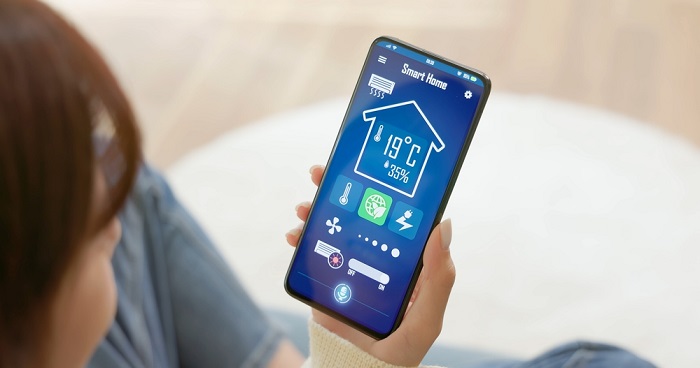
Whether or not you live in a smart home, you’ve probably come across a house that has smart devices, be it a video doorbell or a thermostat. The number of broadband households that own three or more smart devices increased by over 64 percent between 2018 and 2020. With the pandemic urging people to stay home more often, it has convinced homeowners to invest in smart technology that’ll make their homes more efficient and safer.
Most smart devices require a reliable and fast wireless Internet connection, but some devices can be hard-wired. Internet speed of at least 50 Mbps is essential for devices to communicate with each other, automate functions, and allow homeowners to access or control the devices remotely. If you live in a household with multiple Internet users who stream videos in 4K, you may need speeds as high as 500 Mpbs.
To help you choose the best Internet for your smart home, we’ve highlighted the top six ISPs that’ll improve your smart home ecosystem.
AT&T
Each smart home is unique, but all smart homes need fast Internet speeds so that the connection can handle all the bandwidth required by different smart devices. With AT&T, you get a variety of high-speed Internet plans equipped to handle the latest smart home systems or devices. AT&T offers two types of Internet connections: fiber and IPBB (a DSL and fiber hybrid). For smart homes, AT&T is ideal, as there are no data caps, pricing is affordable, and you don't have to commit to a contract.
Fiber availability is limited compared to AT&T’s IPBB service, so if you don’t live in one of its fiber coverage zones, then its IPBB plans offer enough bandwidth to support your smart home. Be sure to check the availability to determine which type of AT&T Internet plan you can get in your area.

Verizon Fios’ reliable fiber network is one of the top Internet connections for smart homes. If you don't want fiber or it’s unavailable in your area, you can get Verizon 5G Home Internet (if it’s available in your neighborhood). Verizon also offers network extenders for smart devices that don't get a signal from the Wi-Fi router.
Verizon Fios offers Internet plans with unlimited data. If you choose one of its fiber plans, you won't have to worry about your smart devices using up your monthly data limits.
Xfinity
As one of the biggest names in the broadband industry, it should be no surprise that Xfinity Internet plans offer excellent reliability and coverage. As a result, it regularly earns above-average customer satisfaction ratings on the American Customer Satisfaction Index. Xfinity also offers TV bundles so that you can get a variety of channels on your smart TV.
Xfinity’s various plans operate on a cable or fiber connection where users can experience gigabit speeds. That’s more than enough to handle the bandwidth of an extensive smart home system. Xfinity’s fiber plans come with no data cap, but they can be expensive. If that’s an issue, you can choose its cable plans since they have more coverage.
Spectrum
Spectrum® is another ISP that doesn't enforce a data cap, making Spectrum Internet plans ideal for smart homes. Its Internet plans might not be the fastest compared to AT&T or Xfinity, but they offer excellent reliability and wide coverage. Spectrum’s pricing and contract terms are also straightforward, and there’s no equipment rental fee.
Smart home residents living in areas with no fiber infrastructure can benefit from Spectrum's hybrid fiber-coaxial Internet connection. This type of connection uses fiber lines for most of the route and switches to coaxial cables for short distances. Spectrum might not offer the blazing speeds of other ISPs, but its speeds are adequate for the average smart home.
Cox
Cox Internet services are available in 19 states across the U.S. Its best features include easy self-installation and a variety of TV and Internet bundles.
Cox also offers Homelife smart equipment optimized for its Cox Internet plans and Panoramic Wi-Fi. This includes home security, a smart thermostat, lighting controls, and other smart systems and devices.
CenturyLink

After investing in smart technology, some homeowners might not have much room in their budget. That makes CenturyLink Internet services ideal, as this provider offers some of the most affordable plans for fiber Internet. On top of its cheaper monthly rates, CenturyLink offers customers a waived monthly equipment fee and no installation charges if they sign up for its Fiber Gigabit Internet plan as a new customer.
Even with cheaper Internet plans, smart home residents don't have to compromise on Internet speed, as CenturyLink’s fiber speeds rival those of other fiber Internet providers. You might want to avoid DSL service, as it might be too slow for a smart home, though some smart devices don’t always need the fastest connection.

